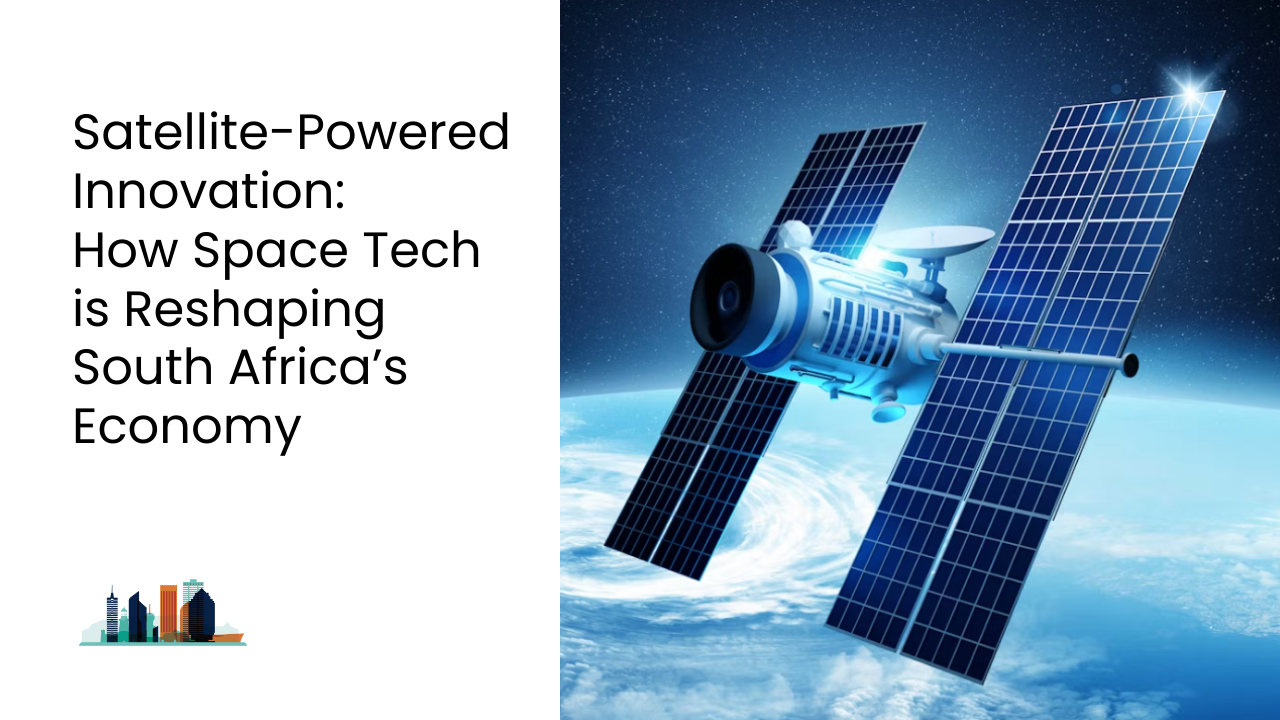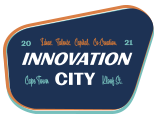
02 Apr Satellite-Powered Innovation: How Space Tech is Reshaping South Africa’s Economy
South Africa’s tech ecosystem has long been a hotbed for innovation, with fintech, edutech, and healthtech leading the charge in transforming industries and bridging economic gaps.
These sectors have grown through a culture of collaboration, strategic investments, and the increasing digital penetration across the continent. But now, a new frontier is emerging – one that has the power to revolutionise not just these industries but the entire economic landscape: Space Technology.

According to the African Space Annual Industry Report, the industry stood at a value of USD 19.5 billion as of the end of 2021.
In 2024, the industry is at USD 22.64 billion, reflecting a steady increase in investment, technological advancements, and regional interest in space-driven solutions.
This growth signals significant opportunities for start-ups looking to enter a sector poised for expansion.
Far beyond the dream of reaching Mars, space technology is redefining how we live and operate on Earth. Satellite advancements can enhance urban planning, track demographic growth, monitor national resources, and even revolutionise education delivery in the most remote locations.
“It’s really expensive to dig up roads and install fibre. What’s much easier is to have a satellite to bounce signals off of and bring broadband to all schools”, says James Barrington-Brown, Founder and Global Chairman at NewSpace Systems.

It’s definitely a numbers game, and there’s space for all who are willing to play. However…
“The commercial value of space in South Africa is not really quantified” – Sibylle Pfeiffer, Portfolio Manager for Space at Wesgro

But one thing is true: Data drives progress.
If the processes of past experiments can be quantified, not only can they be replicated, but they can definitely be applied to our usage of maritime technologies and national surveillance.
So the question then becomes, how can we do this?
This is where policy incentives in support of innovation come into play.
A thriving space economy in South Africa needs regulatory frameworks that are adapted to foster innovation while ensuring ethical and secure deployment of space technologies.
Collaboration between government entities, academia, and private companies can provide the necessary infrastructure and support for start-ups to enter the market and scale their innovations.
Pfeiffer expressed the current landscape within the industry:
“Within the space economy in the Western Cape, the value is about a billion rand. [Consisting of] about 24 companies: super high tech and it’s all interdisciplinary”.
Policies that encourage public-private partnerships for research and development will be critical in ensuring that tech start-ups can scale.
As the sector continues to develop, the integration of space technology with existing industries presents a compelling case for economic expansion and enhanced digital infrastructure.
Additionally, the integration into local industries can create new markets, offering township-based entrepreneurs an opportunity to enter a high-tech space traditionally dominated by established firms.
There is a call to action – whether it’s through satellite manufacturing, data analytics, or advanced telecommunications, there is a place for start-ups in South Africa’s space future.
The challenge is not whether space tech can drive economic growth but how fast we can build the necessary infrastructure, foster collaboration, and create an ecosystem that allows start-ups to thrive.
Compiled by Innovation City intern Christina Yasini









